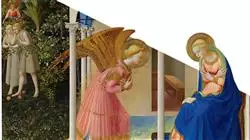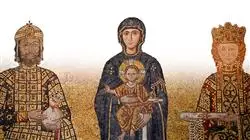University certificate
The world's largest faculty of humanities”
Introduction to the Program
The fundamental knowledge bases for any humanist or philosopher compiled in a high-level training will allow you to understand and learn everything you need to know about Ancient and Medieval Philosophy"

Since the emergence of philosophical thought, the philosopher's gaze has been laying the analytical foundations of the reality of the human being, of their interaction with the world, of their entity as a social being. In this journey it is of vital importance for the philosopher to acquire the necessary discernment to understand first of all, and to describe, expose or develop any kind of work on the historical evolutions of philosophical thought.
In this Postgraduate diploma we will study in more detail two moments of exceptional relevance in the history of philosophy: the ancient and the medieval. With the influence of a social moment of high convulsion, these two historical moments represent a historical moment of essential knowledge for the humanist.
In this Postgraduate diploma, a journey will be made through the different developments that occurred in these periods, in a contextual and deep way, so that the student can convert them into a tool for professional and personal growth of maximum utility for the work as a philosopher in any of its areas.
A complete compendium of knowledge and developments that will propel you to the highest standards of professional training, with the competitiveness of a Postgraduate diploma in this field of work.
But, in addition, with this program you will learn with the most effective systems for the study of this subject.
If you want to improve yourself, make a positive change on a personal level, interact with the best and belong to the new generation of professionals capable of developing their work anywhere in the world, this may be the way to go.
A Postgraduate diploma fully compatible with other work, personal, teaching or study occupations. From its beginning, in its teaching approaches, to its end, in its evaluation, the system will be flexibly adjusted to your needs. In this way, the results are much more efficient since the study will not become an unbearable burden but rather a stimulus and an easy challenge to undertake and bring to completion.
This Postgraduate diploma will allow you to grow as a professional in philosophy and as a humanist, significantly expanding your capacity for analysis and philosophical understanding"
The Postgraduate diploma in History of Ancient and Medieval Philosophy contains the most complete and up-to-date educational program on the market. The most important features of the program include:
- The development of practical cases of application of the theoretical part by means of real cases
- The graphic, schematic and eminently practical contents with which they have been conceived, include a scientific and assistance specialization on those disciplines that are essential for professional practice
- Practical exercises where the self-evaluation process can be carried out to improve learning
- Algorithm-based interactive learning system for decision-making in the situations with which the students are presented
- With special emphasis on hands-on learning
- All of this will be complemented by theoretical lessons, questions to the expert, debate forums on controversial topics, and individual reflection assignments
- Content that is accessible from any fixed or portable device with an Internet connection
Study with the largest university of the technological era and you will be part of an entity with a vocation of service, aware of the current needs of society, globally, and of the individual, in particular"
TECH Global University makes the most innovative, creative and different proposal, in a dynamic institution with talent and international recognition.
With a space to exchange ideas, experience and reflections. You will be able to share experience in the studio, through forums and other collaborative tools, 100% online.
TECH accompanies the student at all times thanks to an involved and committed faculty. The teaching team transmits what they carry out in their professional performance, working from a real, lively and dynamic context. But, above all, we explore the critical side, the ability to question things, problem-solving competence, interpersonal skills.
This Postgraduate diploma is created to make studying simple, efficient and flexible, with the maximum quality of a high-level educational program"

Study with the technical and human solvency of the largest Spanish-speaking, 100% online university in the world"
Why study at TECH?
TECH is the world’s largest online university. With an impressive catalog of more than 14,000 university programs available in 11 languages, it is positioned as a leader in employability, with a 99% job placement rate. In addition, it relies on an enormous faculty of more than 6,000 professors of the highest international renown.

Study at the world's largest online university and guarantee your professional success. The future starts at TECH”
The world’s best online university according to FORBES
The prestigious Forbes magazine, specialized in business and finance, has highlighted TECH as “the world's best online university” This is what they have recently stated in an article in their digital edition in which they echo the success story of this institution, “thanks to the academic offer it provides, the selection of its teaching staff, and an innovative learning method aimed at educating the professionals of the future”
A revolutionary study method, a cutting-edge faculty and a practical focus: the key to TECH's success.
The most complete study plans on the university scene
TECH offers the most complete study plans on the university scene, with syllabuses that cover fundamental concepts and, at the same time, the main scientific advances in their specific scientific areas. In addition, these programs are continuously being updated to guarantee students the academic vanguard and the most in-demand professional skills. In this way, the university's qualifications provide its graduates with a significant advantage to propel their careers to success.
TECH offers the most comprehensive and intensive study plans on the current university scene.
A world-class teaching staff
TECH's teaching staff is made up of more than 6,000 professors with the highest international recognition. Professors, researchers and top executives of multinational companies, including Isaiah Covington, performance coach of the Boston Celtics; Magda Romanska, principal investigator at Harvard MetaLAB; Ignacio Wistumba, chairman of the department of translational molecular pathology at MD Anderson Cancer Center; and D.W. Pine, creative director of TIME magazine, among others.
Internationally renowned experts, specialized in different branches of Health, Technology, Communication and Business, form part of the TECH faculty.
A unique learning method
TECH is the first university to use Relearning in all its programs. It is the best online learning methodology, accredited with international teaching quality certifications, provided by prestigious educational agencies. In addition, this disruptive educational model is complemented with the “Case Method”, thereby setting up a unique online teaching strategy. Innovative teaching resources are also implemented, including detailed videos, infographics and interactive summaries.
TECH combines Relearning and the Case Method in all its university programs to guarantee excellent theoretical and practical learning, studying whenever and wherever you want.
The world's largest online university
TECH is the world’s largest online university. We are the largest educational institution, with the best and widest online educational catalog, one hundred percent online and covering the vast majority of areas of knowledge. We offer a large selection of our own degrees and accredited online undergraduate and postgraduate degrees. In total, more than 14,000 university degrees, in eleven different languages, make us the largest educational largest in the world.
TECH has the world's most extensive catalog of academic and official programs, available in more than 11 languages.
Google Premier Partner
The American technology giant has awarded TECH the Google Google Premier Partner badge. This award, which is only available to 3% of the world's companies, highlights the efficient, flexible and tailored experience that this university provides to students. The recognition as a Google Premier Partner not only accredits the maximum rigor, performance and investment in TECH's digital infrastructures, but also places this university as one of the world's leading technology companies.
Google has positioned TECH in the top 3% of the world's most important technology companies by awarding it its Google Premier Partner badge.
The official online university of the NBA
TECH is the official online university of the NBA. Thanks to our agreement with the biggest league in basketball, we offer our students exclusive university programs, as well as a wide variety of educational resources focused on the business of the league and other areas of the sports industry. Each program is made up of a uniquely designed syllabus and features exceptional guest hosts: professionals with a distinguished sports background who will offer their expertise on the most relevant topics.
TECH has been selected by the NBA, the world's top basketball league, as its official online university.
The top-rated university by its students
Students have positioned TECH as the world's top-rated university on the main review websites, with a highest rating of 4.9 out of 5, obtained from more than 1,000 reviews. These results consolidate TECH as the benchmark university institution at an international level, reflecting the excellence and positive impact of its educational model.” reflecting the excellence and positive impact of its educational model.”
TECH is the world’s top-rated university by its students.
Leaders in employability
TECH has managed to become the leading university in employability. 99% of its students obtain jobs in the academic field they have studied, within one year of completing any of the university's programs. A similar number achieve immediate career enhancement. All this thanks to a study methodology that bases its effectiveness on the acquisition of practical skills, which are absolutely necessary for professional development.
99% of TECH graduates find a job within a year of completing their studies.
Postgraduate Diploma in the History of Ancient and Medieval Philosophy
Have you ever wondered how the foundations of human thought were forged? Are you passionate about discovering the roots of the wisdom that has endured throughout the centuries? Then we have the perfect opportunity for you! The Faculty of Humanities at TECH Global University, presents you with the Postgraduate Diploma in the History of Ancient and Medieval Philosophy, an online program that will immerse you in the thoughts and concepts that have shaped our understanding of the world. This Postgraduate Certificate gives you the chance to explore the brilliant minds of philosophers such as Socrates, Plato, Aristotle, Augustine of Hippo and Thomas Aquinas, among others. Can you imagine being able to analyze their ideas and understand how they have influenced Western civilization? Upon completion of this exciting program, you will acquire solid skills in analyzing ancient and medieval philosophical texts, interpreting arguments, and developing sharp critical thinking. You will be able to appreciate the richness of the philosophical legacy and its relevance in today's world.
Become an expert in the History of Ancient and Medieval Philosophy.
But that's not all, you will receive an internationally recognized certificate that will support your knowledge and open doors in the academic and professional fields. With this program in your hands, you will have a competitive advantage to access job opportunities in research, teaching, consulting and more. Our faculty is composed of recognized experts in the field of ancient and medieval philosophy. They will guide you and share with you their passion for knowledge, providing you with an enriching and stimulating educational experience. You will delve into the ideas of the great philosophers, explore philosophical debates on existence, ethics, politics and religion, and understand how these ideas have influenced contemporary thought, thus witnessing the evolution of human thought and its impact on society. Don't miss the opportunity to immerse yourself in the fascinating world of ancient and medieval philosophy. Are you ready to discover the roots of our thinking and forge your path to an enriching career? Enroll now in the Postgraduate Diploma and get ready for an unparalleled intellectual journey!







